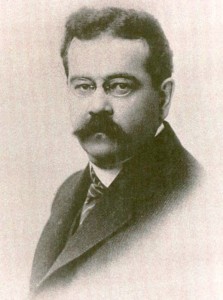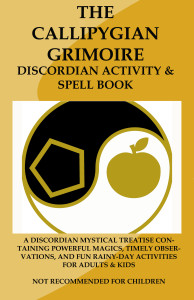Charles Fort was an early 20th Century American author and thinker who spent his time compiling and commenting on anomalies. In his books Lo!, Wild Talents, The Book of the Damned, and New Lands, Fort collected stories of teleportation (a term Fort coined), strange lights in the sky, rains of frogs, and other unusual events. Although Fort is far from a household name, his way of way of looking at the world has generated its own subculture of adherents who call themselves “Forteans.” While the size and makeup of this group is impossible to accurately estimate, there are enough Forteans to support a high-quality monthly magazine (Britain’s Fortean Times) and a number of annual conventions and other gatherings.
 At the heart of Fort’s philosophy is the idea that too much faith in anything, even established science, is ultimately counterproductive. All things should be evaluated according to the rules of evidence and the scientific method, even when they contradict what is generally accepted to be “truth.” In a way, the Fortean worldview is a form of agnosticism that doesn’t limit itself to questions of faith. Absolute proof or disproof can never truly be found, because we can never know anything with 100% certainty. There is always room for new discoveries that will alter what we perceive as reality. Fort summed up this way of looking at the world when he said “I conceive of nothing, in religion, science, or philosophy, that is more than the proper thing to wear, for a while.”
At the heart of Fort’s philosophy is the idea that too much faith in anything, even established science, is ultimately counterproductive. All things should be evaluated according to the rules of evidence and the scientific method, even when they contradict what is generally accepted to be “truth.” In a way, the Fortean worldview is a form of agnosticism that doesn’t limit itself to questions of faith. Absolute proof or disproof can never truly be found, because we can never know anything with 100% certainty. There is always room for new discoveries that will alter what we perceive as reality. Fort summed up this way of looking at the world when he said “I conceive of nothing, in religion, science, or philosophy, that is more than the proper thing to wear, for a while.”
Though Fort did comment on traditional religion, he reserved his most pointed criticisms for the “religion” of established science. Fort believed that scientists are tainted by their own brand of faith, and tend to ignore, discredit, or explain away data that does not fit the accepted “dogma” of science. He called these inconvenient pieces of information “the damned,” and worked to bring them to light. Fort occasionally attempted offer explanations for these anomalies—for example, he was likely the first person to suggest that strange lights in the sky might be alien spacecraft. More often, however, he crafted wild, tongue-in-cheek explanations designed to highlight the pomposity and overconfidence of the scientific establishment.
Fort was interest in all sorts of anomalies, but tended to focus on a few specific types of phenomena, especially strange things seen in or falling from the sky. Today, the term “Fortean” is used to describe a wide range of subject matter, from crytozoology (the study of unverified, often quasi-mythical animals) to the study of unusual powers like remote viewing and telepathy. Though Forteans tend to gravitate toward such fringe topics, they should not be confused with “true believers” who accept such things at face value. At the same time, they should not be lumped in with skeptics like The Amazing Randy and Penn Gillette who deny the existence of weirdness with an almost religious fervor. Forteans walk the fine line between these two groups, tempering with the open-mindedness of the believer with the skeptic’s highly valued (but often less than admirably practiced) objectivity.




















































Comments
Add a Comment